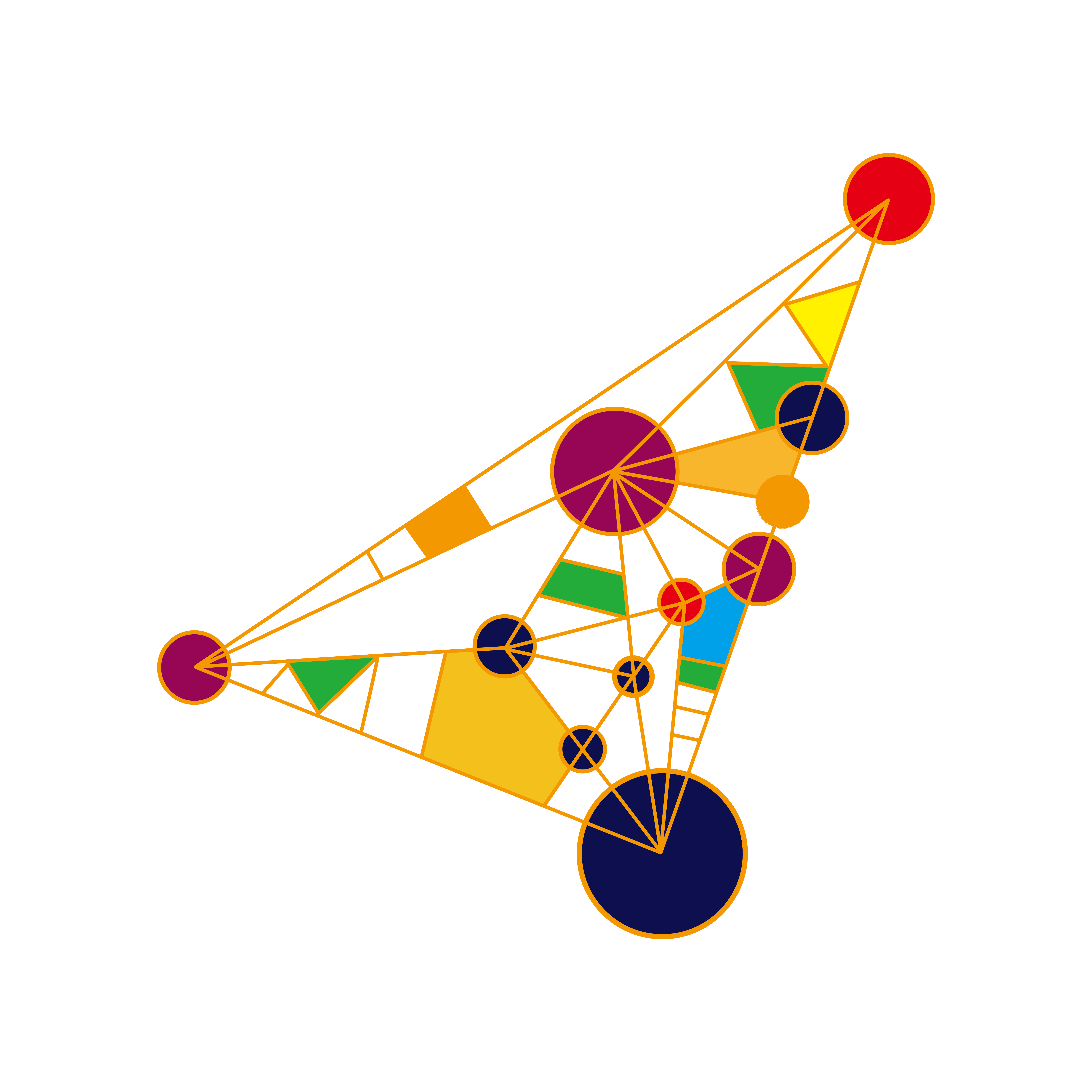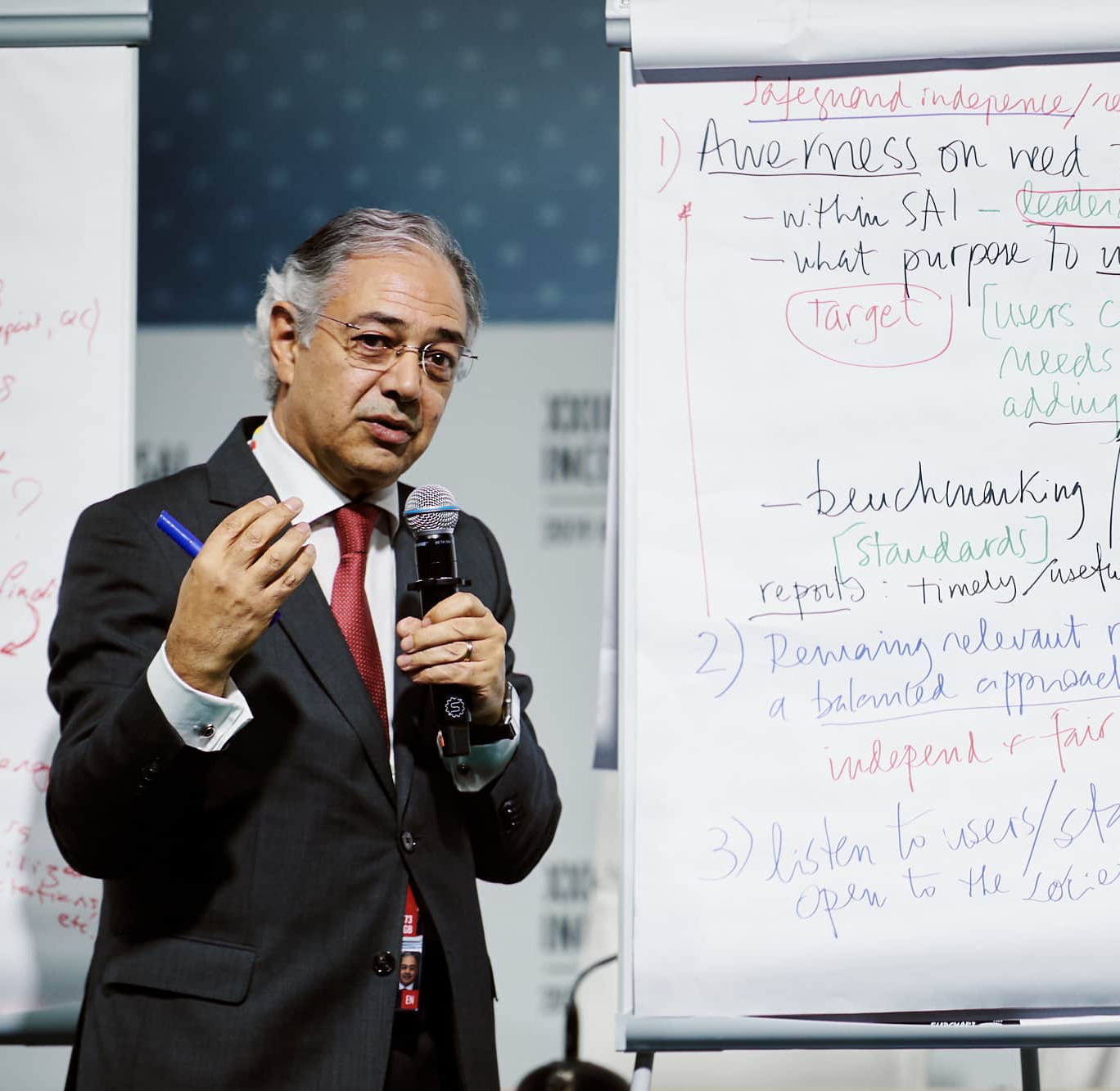Progress
Big data audit capabilities are of particular relevance to SAIs, especially as the public sector is going digital at an increased pace (Austria). Moreover, the follow-up to the pandemic has demonstrated the relevance of the data. It has been through data management that governments have had to make their decisions so that they can be supported in their actions (Chile). SAIs report to have implemented IT strategies and employing analysis of big data in their work (Jordan, Myanmar, Russia). It has proved to be useful in such areas as risk analysis (India, Chile), planning stages of the audit process, as well as in conducting an audit, and, finally, in preparing reports (Egypt). Repeatable data analytic models are created to reuse the same in subsequent audits (India).
Ecuador:
SAI of Ecuador carries out the planning of the audit based on criteria or parameters such as expiration, orders and complaints, contracting processes, materiality, among others. Multidisciplinary teams are formed to carry out the control process including such roles as team leader, supervisor, operative and, when needed, specialized support personnel, such as computer engineers specialized in data base analysis, civil engineers, lawyers. According to the need of support, professionals in different disciplines are included.
Most SAIs have already created special teams of IT-auditors and actively participate in digital communities (France, Myanmar, USA, Jordan, Malaysia, Malta, Slovenia). Internally, this has found reflection in setting up data analytics centers, creating special organizational units (India, Czech Republic), developing and implementing data analytical methodology, policies and guidelines (India, Peru, Ecuador). SAIs participate in trainings and workshops in the field of data analytics (North Macedonia, Thailand, Indonesia, Jamaica, Algeria) and INTOSAI working groups to consolidate knowledge and recognize international practice (India, Indonesia, Ecuador, USA, UK). The INTOSAI KSC Working Group on Big Data is in the process of bringing out various guidelines to assist SAIs in this area.
Algeria:
Our SAI organized a workshop on "IT Audit: Planning the Audit Engagement and Meeting with Entities Audited by our SAI about their Information Systems". Our SAI uses audit planning tools such as the programmed tables "MS Excel VBA", for the automation and consolidation of audit work, used in particular in the preparation of annual programs, progress reports and balance sheets, as well as their online follow-up. Another tool "OLAP: Online Analytical Processing" is used for audit work in the area of data analysis. This technology enables multidimensional data analyses to be carried out in the SQL databases created for this purpose. OLAP cubes provide auditors with the knowledge and practice related to the concepts of Self-Service Business Intelligence, i.e. data consolidation and aggregation and multi-dimensional representation. The objective is to automate and program cubes for the assessment of the general state budget, enabling the generation of a synthesis of raw data tables in this area.
China:
The data analytics team in SAI China develops data analytics plan every quarter, and introduces new technologies, for instance model construction, data mining, and satellite images and etc., in the audit assignments to assist the auditors in various fields to identify the weakness and improve efficiency.
Challenges
Lack of trained staff and knowledge, insufficient finances for organizational innovations or possibilities for training employees have been identified as the most common challenges with regard to this provision (Peru, Malta, Netherlands, Suriname, Cyprus, Norway). Technical capacity of many SAIs is admittedly not enough in order to use data analytics in audit, building of data analytics centers (Portugal, Peru, Costa Rica, St. Vincent and the Grenadines, Norway, Armenia, St. Vincent and the Grenadines, Malaysia). In general, the issue still remains to instill a culture and mindset of utilizing such tools in audits and not relying on traditional audit techniques (Cyprus). Externally, problems have been encountered in the process of getting access to databases of government entities, given that not all of them are ready to cooperate (Mexico, Jamaica).
North Macedonia:
For full implementation of conclusions of the Moscow Declaration, it is necessary to strengthen the capacities of SAO auditors for better use of data analysis in audit by forming experienced data analysis teams and introducing new techniques in the practice of public sector audit.
Malaysia:
The main challenges in the implementation are to identify real-time operation capability such as data acquisition, processing and decision making; synchronize data analytics procedures with audit objectives including data definition, entity relationship and relational keys and design virtualization to create interactive presentation report with smart graphics and illustration.
Plans
SAIs appreciate the additional value created by data analytics and generally confirm the intention to amplify its use in the audit work. Most replies suggest that the primary goals are to increase the development of new procedures to cover new thematic areas, and ensure adequate training for staff in the use of data analysis tools (Peru, Slovakia, Jamaica, Czech Republic, North Macedonia, Russia). Separate data analytics plans and strategies are not uncommon (China, Malaysia). More importantly, data analytics is used itself to support planning procedures.
Jamaica:
SAI intends to provide added support to this area both in terms of training for staff members as well as added resources via software solutions and equipment/infrastructure. The SAI will also request access to additional GOJ databases. No impediment outside of funding is anticipated.
Contact Us
The Accounts Chamber of the Russian Federation
Department for International and Regional Cooperation
119121, Russia, Moscow, Zubovskaya street, 2










